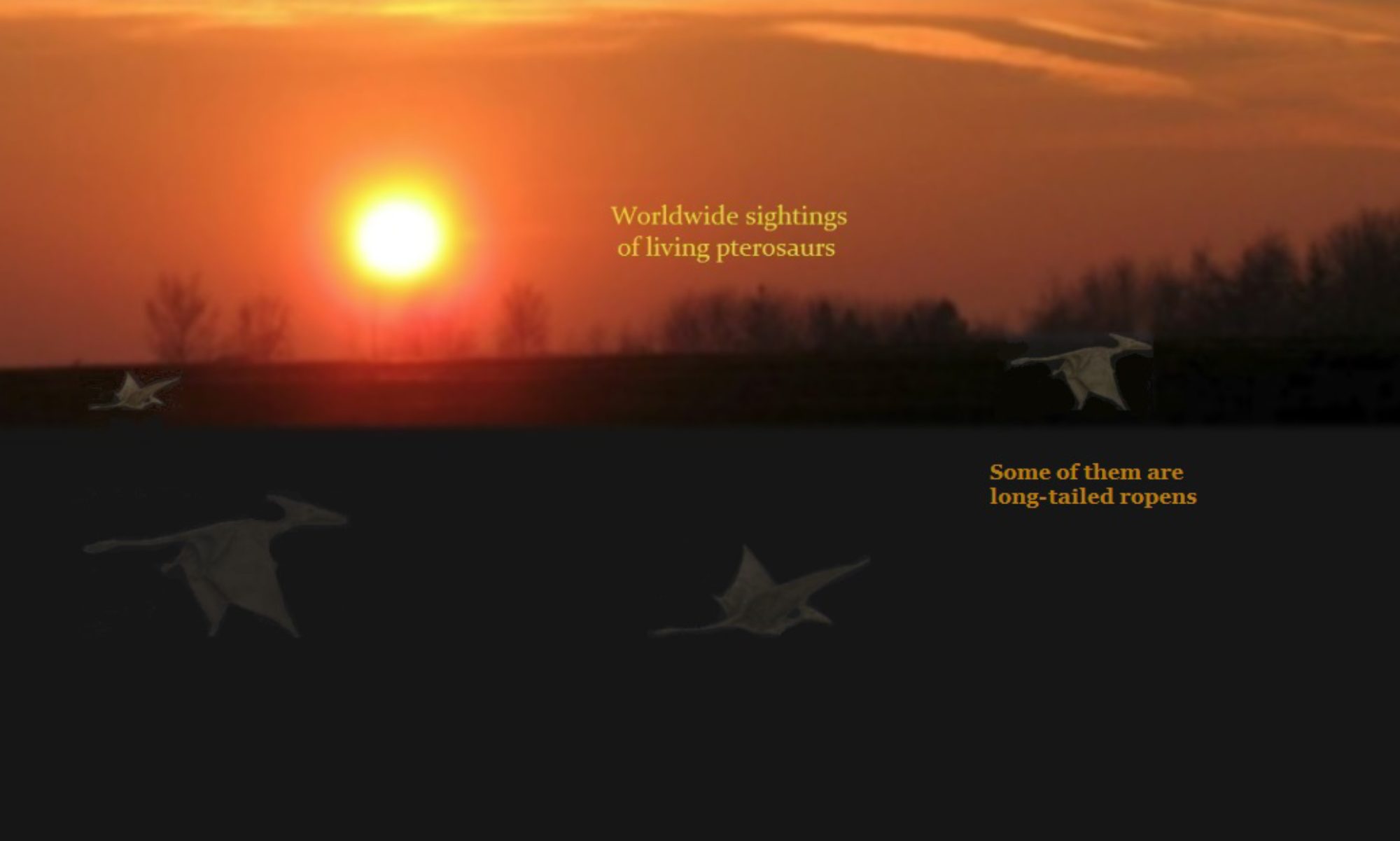The Pterosaur Eyewitness blog recently had a post titled “Pterodactyl Attacks and Human Deaths.” For me, it brings to mind native accounts from Papua New Guinea, but this is far closer to home, in British Columbia, Canada. For many years, there have been reports of people being attacked in Africa and in Papua New Guinea. I have only recently noticed this news about flying creatures attacking people in British Columbia at night. For the moment, I have little to add except to recommend this post I have mentioned and to quote from it.
I hope that no pterosaur was responsible for any of the human deaths in British Columbia, Canada, along the 500-mile stretch of highway from Prince George to Prince Rupert, but I also hope that all attacks from irresponsible humans, against innocent human victims, will cease, and that this world will become a paradise in which death itself will cease. Notwithstanding all our hopes for the future, however, we now face a present danger, a warning from Gerald McIsaac, author of Bird From Hell, who believes that “most of the hitchhikers [on this highway at night] who disappear have been killed by this animal. It is also my opinion that many of the people who have disappeared have not been reported.”
I said I had little to add but I retract that. In Papua New Guinea, deep in the mainland, in 2006, Paul Nation, from Texas, was searching for the flying creature that natives in Tawa Village call “indava.” He learned that those natives remember a time when the indava would fly down on Tawa and carry away a pig or a child. Attacks on natives and their pigs stopped when the natives learned to make a lot of noise when they heard the indavas coming; since then they have had little if any problems from indava attacks. Paul Nation believes the indava is the same kind or a similar kind of pterosaur as the ropen.
In the northern islands of Papua New Guinea, the natives call the ropen “kor.” It was said to have attacked Japanese soldiers during World War II. The Japanese retaliated, sending a ship’s bombardment onto one or more of the caves where the kor lived.
Other examples could be given from Africa, but I think this is cause enough, because of potential attacks from nocturnal flying creatures, for people in British Columbia to be careful when they are out at night.


